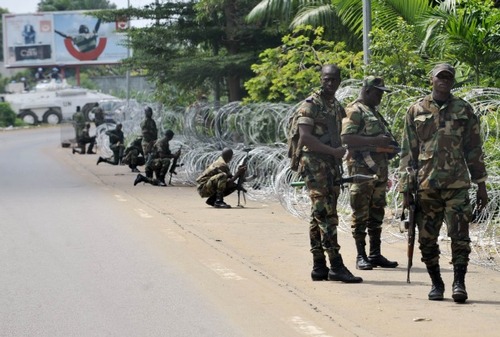This post originally appeared on the World Bank's Conflict blog on December 30, 2010.
The stand-off between Messrs Laurent Gbagbo and Alassane Ouattara in Côte D'Ivoire highlights the new role of regional organizations in dealing with the challenges of irresponsible leadership in their own backyards.
In microeconomics we assume perfect information in the same way we often assume responsible leadership in fragile states. While the former is a convenient analytical artifice, the latter can be downright misleading. It is important to recognize this because our prescriptions for building public confidence and conflict-resistant institutions are predicated on a view of national leadership that may be the exception rather than the rule. Leaders in violence-prone places are not necessarily thinking of some higher good when they choose a particular course of action. Many see their responsibility in narrow terms; an obligation that goes no further than serving their own self-interest and looking out for their friends. These kinds of behaviors are hard to influence where politics is played as a zero sum game. To change them, the United Nations, the World Bank, and some bilateral agencies have supported programs to foster cooperative leadership and build coalitions. This takes a long time to show results and, of course, there's no guarantee such a soft approach will work in a high stakes environment. Another way is to spell out the consequences of things turning sour. The diplomatic and development community tried this in Zimbabwe in the early 2000s by underlining the growing gap in social and economic outcomes between Zimbabwe and its neighbors. Turning off the aid tap to signal dissatisfaction may get people's attention but it leads to volatility in aid flows which can undermine the development of the very institutions that in the long run hold promise for a more secure and stable future.
In extreme cases, when national leaders are reluctant to take steps to avoid violence, international actors can threaten various forms of sanctions. For instance, sanctions against apartheid South Africa are often credited with helping to force political change in that country. The causal effects of sanctions, however, remain disputed. Critics cite their negative humanitarian impact and the danger of creating illicit economies that can enrich entrenched regimes. Other initiatives to mitigate the negative effects of sanctions are targeted instruments such as financial and travel restrictions imposed on individual leaders or groups.
With little public support for the general strike called by Mr. Ouattara, Mr. Gbagbo seems determined to sit tight on his claim to the presidency. As he weighs up his options, it is the new determination of regional bodies to hold their members and neighbors to account that must be uppermost in his mind. The Lomé Declaration establishes standards and a regional response mechanism to unconstitutional changes in government. Since it was agreed in 2000 the number of coups in Africa has declined from 15 in the 1990s to 5 through 2010. The African Union and the Economic Community of West African States (ECOWAS) are now playing a leading role in Côte D'Ivoire based on the norms of constitutional behavior they have collectively promulgated - and respect for which they are trying to enforce, including through the threat of armed intervention. It is pressures from these newly empowered regional groupings that are likely to play an increasingly significant role in encouraging responsible leadership in fragile states.
